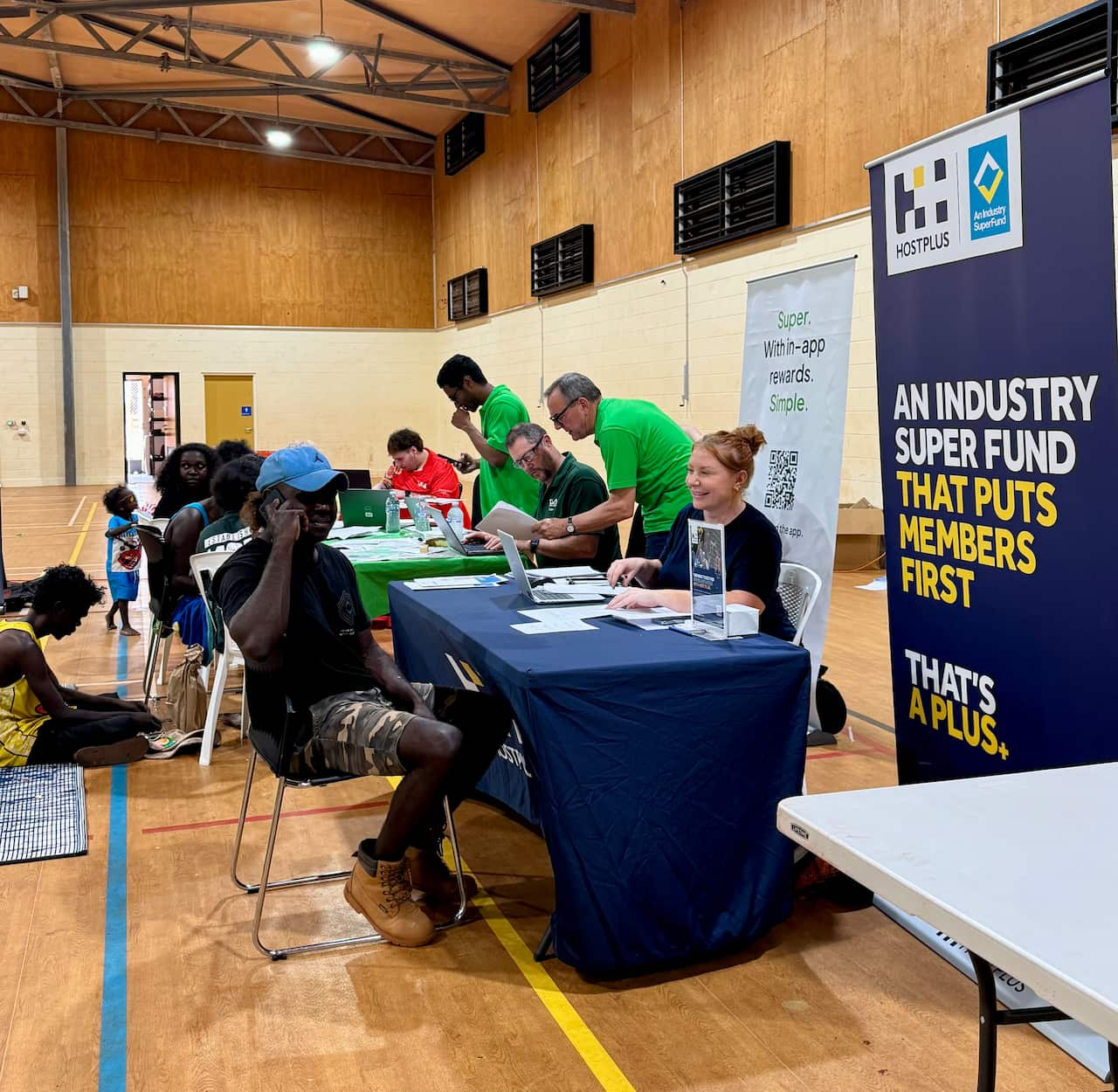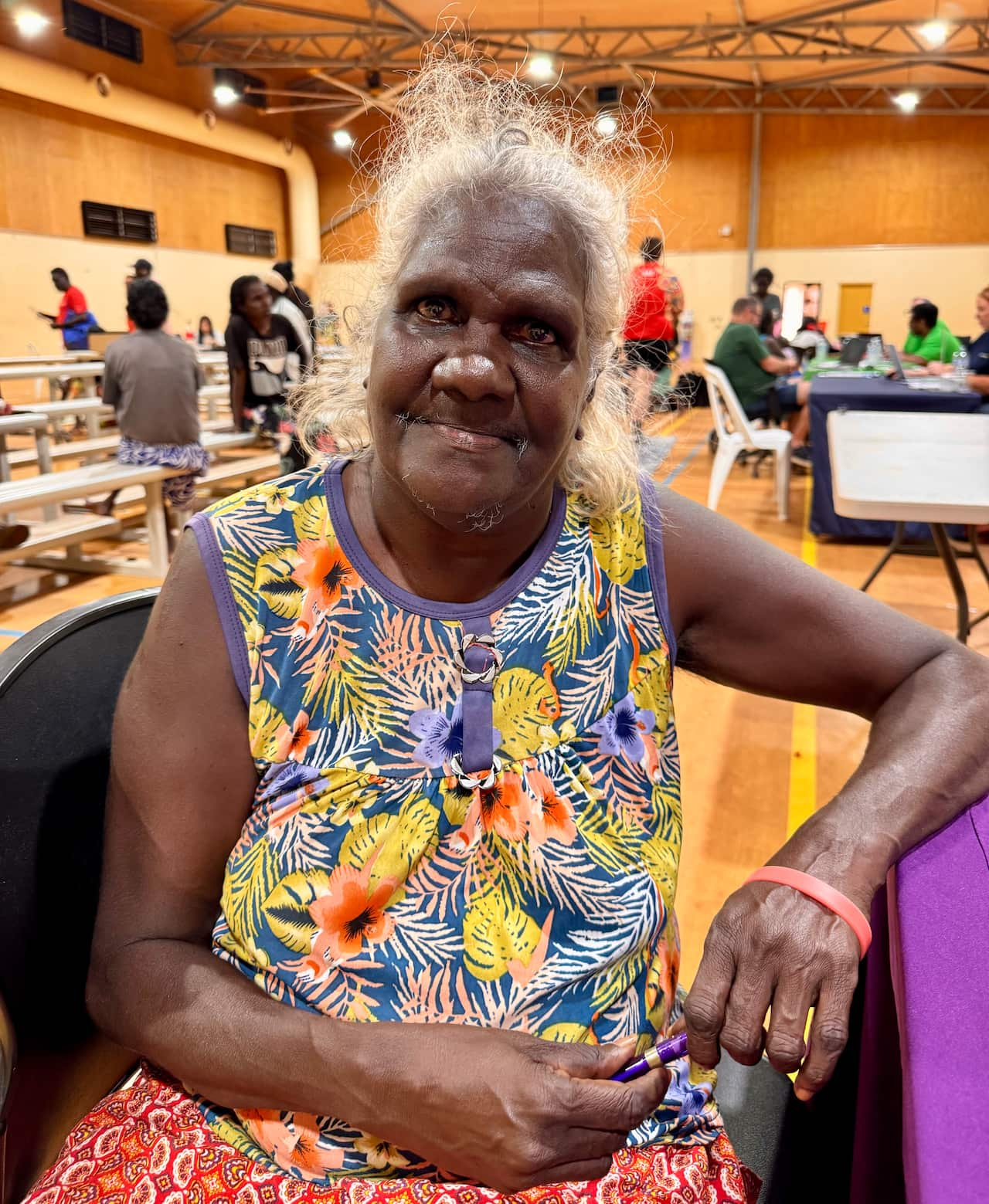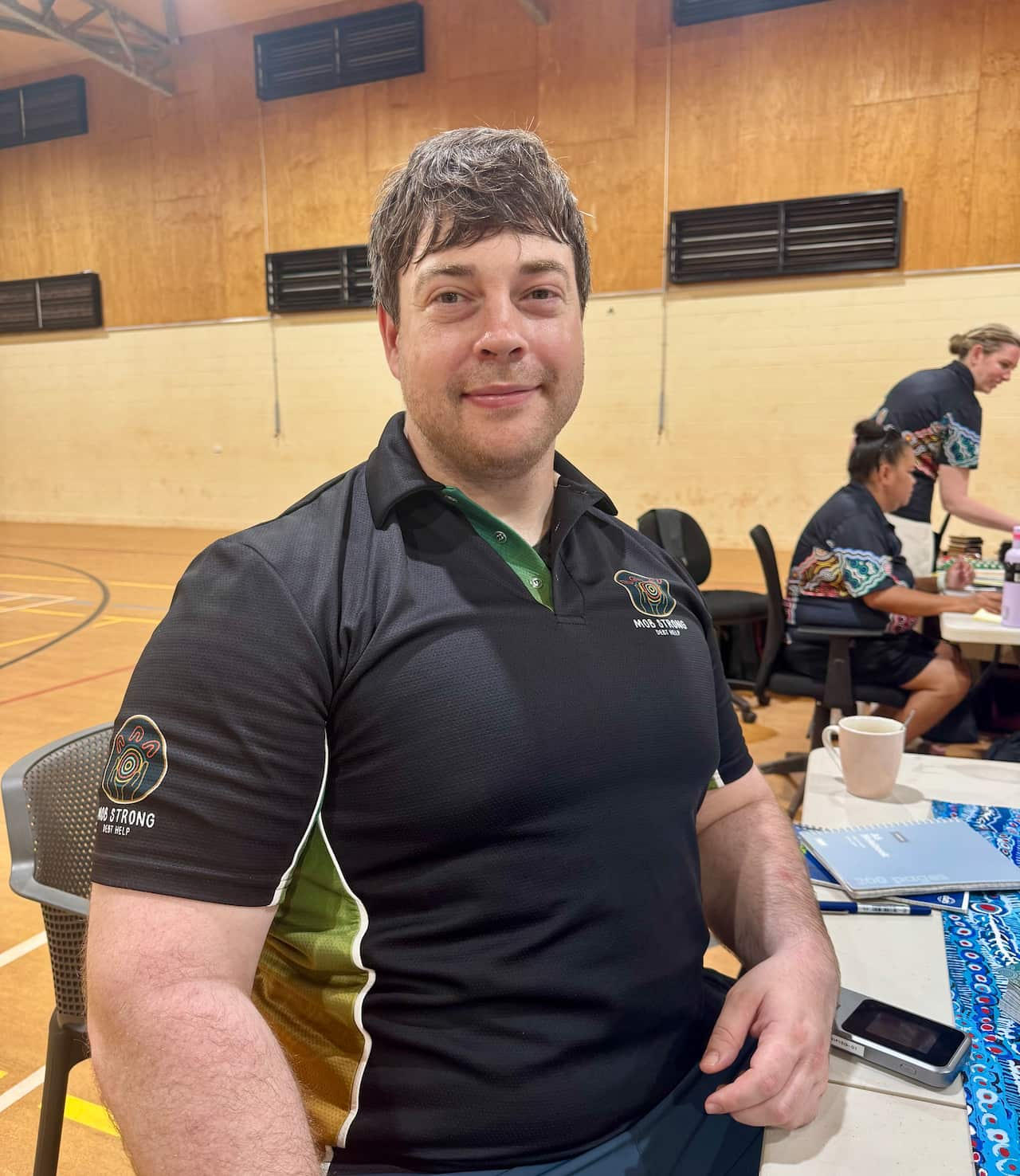It's been nine years since Yolngu man Jeffrey Dhurrkay's brother passed away.
Until now, the 57-year-old was unaware of the super fund his brother left behind, due to an inability to access the necessary services.
Mr Dhurrkay told NITV a lack of in person services and language barriers when seeking advice over the phone made it challenging to find information.
"Sometimes it's too hard for community people ... sometimes we find difficulty," Mr Dhurrkay told NITV News.
It wasn't until financial services travelled to his home community of Galiwin'ku — an island community in the remote northeast Arnhem Land of the Northern Territory — that Mr Dhurrkay was able to finalise a super death benefit claim.
He has now recovered $40,000 dollars in his brother's name, money that will be shared among his family.
"There is only four of us ... good to share with family, we have to share this money," Mr Dhurrkay said.
'Money they've earned'

The discovery was made possible by a visit from financial services to Galiwin'ku for an initiative known as Financial Wellness Week.
The program is lead by the Arnhem Land Progress Association (ALPA) — Australia's largest Aboriginal corporation, owned by Yolngu members and governed by a Yolngu board.
Eddy Alder is the Community Engagement Manager for ALPA and has overseen the rollout of the program, which started in 2019 and returned to communities last year after a hiatus due to the COVID-19 pandemic.
Mr Alder told NITV that one of its benefits is having multiple financial services available for in-person consultations simultaneously, allowing for easy collaboration between services to suit client's needs.
"This is money they've earned, this is money they are owed," Mr Alder said.
"To be able to support one community member to be able to meet with multiple large institutions is just something that would not happen."
61-year-old Sandra Mamydjiwuy says a lack of financial literacy and the option for in-person service were key reasons many people came to seek help.
"Some people, they don't know where their money goes, that's why they came ... there is no one to help them get the money," the Yolngu woman said.
Ms Mamydjiwuy said seeking help over the phone is difficult due to language barriers and issues with records that can only be fixed in-person.
"It's hard on the phone because when we ring them up they say 'Go to the nearest place ... like to Darwin,' because Darwin is the base for all the community," Ms Mamydjiwuy said.

Superannuation system failing First Nations people
A recent report by Super Consumers Australia and Mob Strong Debt Help released in July found many First Nations people experience discriminatory policies and rigid regulatory processes that delay access to their savings.
The research surveyed 99 First Nations consumers in the Eastern Arnhem region and consulted 19 financial counsellors nationwide.
Its key findings revealed First Nations Australians are being systematically excluded from accessing their superannuation in retirement, during hardship, and after death.
Dunghutti man Mark Holden works as a senior lawyer and policy advocate at Mob Strong Debt Help.
Mr Holden told NITV some of the biggest barriers identified were rigid requirements for verifying identities, language barriers, and the reliance on digital platforms to access funds.
"By applying a one size fits all strategy approach, you actually end up having the most vulnerable people in these communities, somewhat over 250,000 people, not able to access their own money," Mr Holden said.

Mr Holden said it is reasonable to expect banks and super funds to travel to remote areas to provide in-person services to their clients.
"If the client has a vulnerability, they have to be able to accommodate that vulnerability," he said.
"Which means that if they can not access the local services then I think it's reasonable for the banks to come here, otherwise [the client] will not be able to access the services."
Mr Holden also reiterated calls for there to be uniform standards in place for super funds to follow, for the death benefit scheme to be revised, and more support from the industry for financial counsellors.
"We need to be able to support our financial counsellors more. There is an industry fund for financial counsellors that superannuation funds can make contributions towards," Mr Holden said.
"We want to have uniform standards for these super funds to follow.
"We want the death benefit scheme to be revised, it is slow, it is archaic, it has far too many barriers."
Mismatch of information a key hurdle for ATO
Manfred Mletsin works for accounting services SAMAF consultants and travelled to Galiwin'ku to deliver the Charles Darwin University Free Tax Clinic, an initiative funded by the Australian Government through the Australian Taxation Office.
Throughout the three days spent on the island, Mr Mletsin and his student colleague processed more than a thousand tax returns for people in the community.
"We've had multiple cases when there has been 20-plus years of tax returns not done. Oftentimes 50 per cent are nil lodgements and 50 per cent actually have a refund," Mr Mletsin told NITV News.
Mr Mletsin said one of the key issues for First Nations people in remote communities is a mismatch of information with the ATO office and other departments.
In some cases it's as simple as the day and month of a date of birth being recorded the wrong way around, or a first and last name switched.
For people unable to access the office in-person, it could mean hours spent on the phone to fix the issue.
For many in remote areas, limited access to technology and additional language barriers can sometimes make it impossible.
"Having that face-to-face connection is often much easier and we can also explain [the process] better to the person as well," Mr Mletsin said.
While many people living in Galiwin'ku have welcomed the visit from services during Financial Wellness Week, Senior Elder of the Yolngu Galpu clan Glen Gurruwiwi told NITV he hopes more can be done to break down those barriers long-term.
"This is good you know, it's fixing up all the problems, Mr Gurruwiwi said.
"It's helping people because they have been waiting for this."

